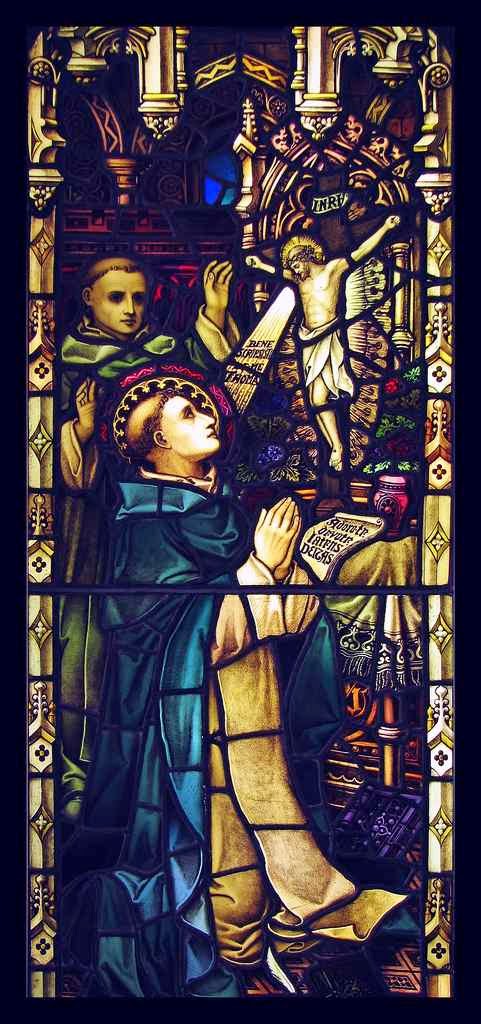Today is the traditional feastday of St. Thomas Aquinas, Common Doctor of the Catholic Church, Patron of All Catholic Schools. March 7 is the birthday of the Angelic Doctor into eternal life, at the age of 49, en route to the General Council at Lyons. In his honor, it seems fitting to share the story of his death, as told by Bernard Gui in the Vitae Sancti Thomae Aquinatis:![]()
Some days later the holy man had recovered his strength enough to continue the journey to Rome; but, passing near the Cistercian monastery of Fossanova and receiving a warm invitation from the abbot and community to stay there a while until his health should be perfectly restored, Thomas accepted the invitation and turned aside to the abbey. And after saying a prayer before the high altar of the abbey church, as he entered the cloister the hand of the Lord came upon him, and he knew in his spirit that he had now reached the end of his life . . .St. Thomas Aquinas, pray for us: obtain for us the grace to imitate your humility, devotion, and obedience, and some share of your wisdom, that we may live and die as you lived and died, in faithful communion with Christ and His Holy Church. Amen.
The abbot kindly gave him a room in his own apartments, with all the comforts that could be provided, as was fitting for such a guest; and being now utterly exhausted, he was put to bed and waited on by the monks with all reverence and humility. It was winter and they kept a fire burning in his room, carrying the logs in from the wood on their shoulders. And seeing this, Thomas said, 'Who am I that the servants of God should wait on me like this?' And now with every day that passed his body grew weaker; yet still from his spirit flowed the stream of doctrine. For, being asked by some of the monks to leave them some memorial of his stay with them, he gave a brief exposition of the Canticle of Solomon [the Song of Songs]. And it was indeed appropriate that the great worker in the school of the Church should terminate his teaching on that song of eternal glory; that such a master in that school, when about to pass from the prison of the body to the heavenly wedding-feast, should discourse on the bridal union of the Church with Christ her Spouse.
Feeling his strength ebbing away, he devoutly asked for the most holy Body of Christ: and when the abbot, accompanied by the monks, brought it to him, he did reverence to it, prostrate on the ground; weak in body, but with his mind, as it were, running strongly to meet the Lord. And being asked, as the Church's discipline requires, whether he believed that this was indeed the body of the Son of God which was born of the Virgin and hung on the cross for our sake and on the third day rose again, Thomas answered with a strong voice and alert devotion and shedding tears:
"Even were it possible for us wayfarers through life to have some greater knowledge of this truth than sincere faith gives us—faith inexpressibly true—yet now in that faith alone I declare that I truly believe and most certainly know that this is indeed true God and Man, Son of the eternal Father, born of the Virgin Mother, the Lord Jesus Christ. This I sincerely believe and profess."
Then with tears and devotion he received the life-giving Sacrament. But first, according to report, he said also these words:
"O price of my redemption and food for my pilgrimage, I receive You! For Your sake I have studied and toiled and kept vigil. I have preached You and taught You. Never consciously have I said a word against You. But if I should have said or written anything amiss on this sacrament or any of the others, I leave it all to the judgment of the holy Roman Church, in obedience to whom I desire to end my life."
On the following day he asked for and received the Last Anointing. His mind remained clear through the ceremony and he answered the prayers himself. Then, joining his hands, he peacefully gave back his spirit to its Maker.
